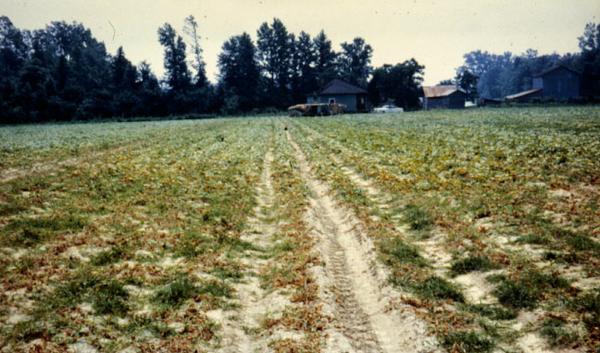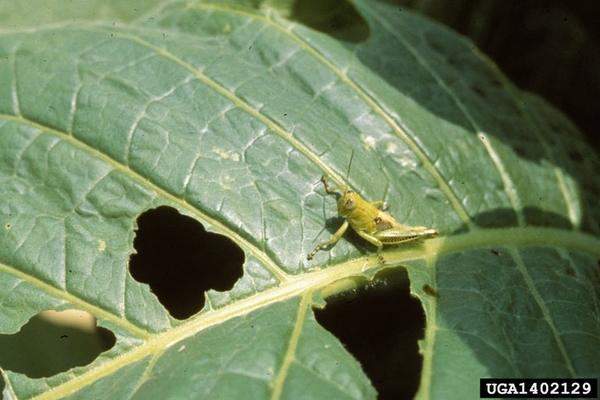North Carolina Wheat Scab Risk Update
This is the first North Carolina scab risk commentary for the 2017 scab monitoring season. In most of NC, …


El inglés es el idioma de control de esta página. En la medida en que haya algún conflicto entre la traducción al inglés y la traducción, el inglés prevalece.
Al hacer clic en el enlace de traducción se activa un servicio de traducción gratuito para convertir la página al español. Al igual que con cualquier traducción por Internet, la conversión no es sensible al contexto y puede que no traduzca el texto en su significado original. NC State Extension no garantiza la exactitud del texto traducido. Por favor, tenga en cuenta que algunas aplicaciones y/o servicios pueden no funcionar como se espera cuando se traducen.
Inglês é o idioma de controle desta página. Na medida que haja algum conflito entre o texto original em Inglês e a tradução, o Inglês prevalece.
Ao clicar no link de tradução, um serviço gratuito de tradução será ativado para converter a página para o Português. Como em qualquer tradução pela internet, a conversão não é sensivel ao contexto e pode não ocorrer a tradução para o significado orginal. O serviço de Extensão da Carolina do Norte (NC State Extension) não garante a exatidão do texto traduzido. Por favor, observe que algumas funções ou serviços podem não funcionar como esperado após a tradução.
English is the controlling language of this page. To the extent there is any conflict between the English text and the translation, English controls.
Clicking on the translation link activates a free translation service to convert the page to Spanish. As with any Internet translation, the conversion is not context-sensitive and may not translate the text to its original meaning. NC State Extension does not guarantee the accuracy of the translated text. Please note that some applications and/or services may not function as expected when translated.
Collapse ▲This is the first North Carolina scab risk commentary for the 2017 scab monitoring season. In most of NC, …

During March 2017 the NCSU Plant Disease and Insect Clinic confirmed the presence of the bacterium Dickeya dianthicola on …

Pine needle scales are relatively easy to find and to monitor for crawler activity. Stare at the needles of …

A team of University and Extension personnel from around the Southeast has created the 2017 Southeastern US Pest Control …

Warm early spring weather, coupled with a mild winter, has set the stage for early pest activity in some …

Graduate student Pete Nelson has been busy studying the biology of spined stilt bugs in tobacco in order to …
8/17/2022 – UPDATE: Here is a link to the latest Southeastern Vegetable (and Hops!) Crop Handbook. 2/9/2017 – We get …

Members of the Sustainable SWD Project will present a webinar online on January 25th at 12-1 p.m. eastern time, highlighting …

The public should be aware of the possibility of introducing boxwood blight into home landscapes not only on infected …
Safe pesticide storage is essential, especially in disaster situations. Improperly stored pesticide products can pose significant threats to humans …

As the floodwaters recede following hurricane Matthew and people begin the difficult task of cleanup in and around their …

Our laboratory has recently published a study which measured the differences between our current integrated pest management (IPM) recommendations for tobacco …

Barely a day goes by when Zika virus is not in the news headlines. As of August 31st 2016, …

This is the final spotted wing drosophila (SWD) monitoring report for 2016. Looking back over the course of the season, we …

Our laboratory is excited to begin a new project aimed at answering several questions about pollination ecology in strawberries.These questions …

We have now counted blackberry trap captures through August 8th. We have observed a decline in Lincoln 1 trap …

A few weeks ago while harvesting blackberries at the Piedmont Research Station, I came across a rare but incredible …

We presented our final blueberry monitoring data last week, so this week, we shift to presenting blackberry trap captures …
Re-posted from ecoipm.org: A couple years ago I began warning about a new pest that was spreading throughout crape myrtle …

This vegetable pathology factsheet describes the identification and treatment of anthracnose of pepper.

This publication describes the invasive Callery pear species, its offspring, and how it can harm …
This factsheet describes the biology of the cane lace bug or bamboo lace bug, Leptodictya …

This factsheet describes the biology of the banded sphinx moth or lesser vine sphinx, Eumorpha …

This factsheet describes the biology of the elm-grass root aphid, Tetraneura ulmi, and provides residential …

Gummy stem blight is caused by several closely related fungal pathogens in the genus Stagonosporopsis …

This vegetable pathology factsheet describes the identification and treatment of anthracnose in cucurbits.

Several species of grasshoppers can cause foliar feeding damage in tobacco. They are typically most …